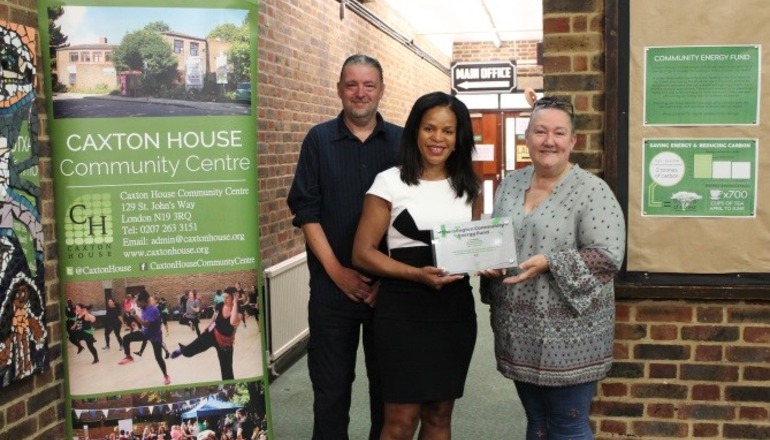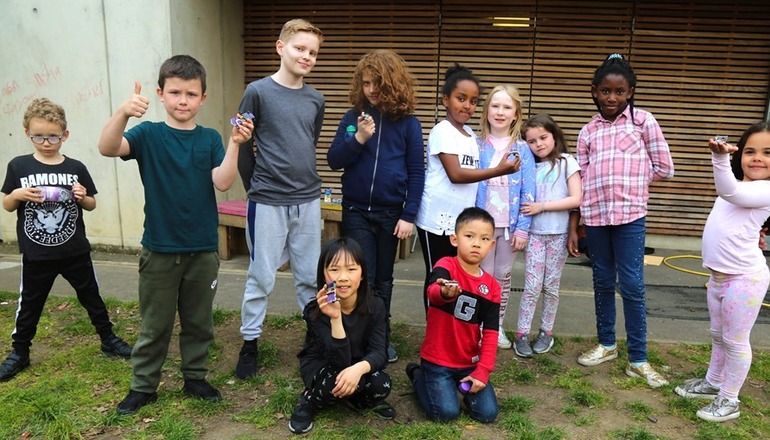Islington Council (IC) has been highly commended in the 2019 Community Energy Local Authority Award category of the Community Energy Awards.
This award is sponsored by PowerPaired, a new, free online platform which provides a matchmaking service to bring together community energy groups and the owners of sites with potential for renewable energy generation. Created by sustainability NGO Forum for the Future, over 100 assets are already on offer from organisations such as the National Grid alongside churches, schools, offices and other sites across the UK that could potentially host a community-owned renewable energy project. If you're a potential asset owner or community energy group, register here - it takes 5 minutes!
The Islington Community Energy Fund (ICEF) was set up to distribute Section 106 Carbon Offset funds to local community groups who wanted to start innovative energy projects to help reduce fuel poverty. To date, 31 projects have been funded over four rounds. Cumulatively these projects will save around 121 tonnes of CO2 per year and generate just under 300,000 kWh of energy. The fund will continue for another two rounds and support many more groups to participate.
The council team administers the Community Energy Fund from start to finish. They visit applicants prior to them submitting an application, evaluate the suitability of projects, and monitor projects closely. All projects receive a visit, phone calls, and any other support needed.
Workshops are held for interested applicants, helping them to network with one another and share ideas, and the council team has formed strong relationships with organisations that can help projects or provide additional funding, inviting them to connect with those applicants who need their services.
The fund also connects projects with other IC departments and community groups where suitable. It has helped enable a number of energy projects led by the community, which wouldn’t have otherwise been able to get off the ground due to a lack of funding. These organisations save energy and reduce carbon, as well as saving money to put back into their core works, or to help those in the area who are fuel poor. For example, a local youth group was given funding to put in an air source heat pump, solar PV and battery storage. This means their electricity-only building can now run at a greatly reduced cost, meaning they can keep it open for longer, but also ensure that the youth groups who use the facility are warm and comfortable.

Many of the projects have been supported to produce toolkits of their project, to help replicate great projects across the borough, and beyond. Successful local groups are invited to share their experiences with new applicants and at each round of funding the council team speak to local groups who have expressed an interest in a project and reach out to community centres, youth groups, voluntary organisations, BAME groups, religious organisations and others to promote ICEF and discuss ideas they may have.
A great example of this peer-to-peer learning happened when a housing co-operative received funding for the early phase of a large-scale project they wish to implement. It means 64 flats will generate their own energy and become as self-sufficient as possible. The applicant was invited to speak at a workshop to show what is possible for a housing group. From that workshop, another housing co-operative has been inspired to put in an application to make their building comprising 60 flats more efficient. These buildings will be able to reduce the communal charges for energy to residents, helping those who may be in fuel poverty. It will also give these residents more money in their pocket to spend locally.

Grassroots organisations are key to implementing change in an area. Smaller groups are becoming empowered to do something within their community to reduce their energy use and save money. By funding projects, the ICEF is helping small groups to contribute to creating a zero carbon UK and helping those who may have to choose between heating and eating to be able to afford both.
Funding will continue for at least two more rounds, with £220,000 left to distribute. The team is working with other councils to help them understand the project and support them to set up their own working funds. Whilst in Islington the projects are being used as part of the Carbon Action Plan for Islington to become zero carbon by 2030. Local groups will play a key role in reducing energy use in Islington.